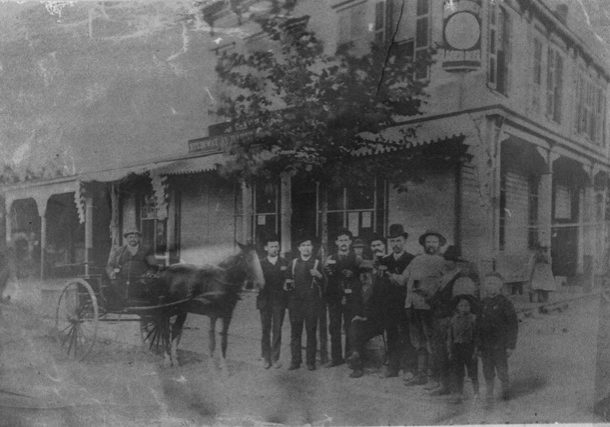Locking Down The Data: Protecting Your Personal Information During the Pandemic
COVID-19 has highlighted the central role of the Internet in both our professional and personal lives, but this increasingly digital world comes with a fresh set of challenges. We spoke to Elias Fillas of Astoria’s own Sacco & Fillas LLP to learn more about the legal ins and outs of controlling one’s personal information on the web.
GMA: As a business owner, what do you do if someone is spreading false information about you in the form of a Yelp or Google review?
EF: Recently, I’ve been getting these inquiries from various clients who are dealing with customers leaving unflattering reviews and, in some cases, false information on Yelp or other platforms. What I advise my clients to do is to first try and reach out to the customer and see if his/her issues can be resolved. Often times customers just want to air out their issues and if the customer sees that the business really tries to resolve the discrepancy, they can withdraw or modify the review. It is much more difficult to remove a negative review or false information about your business on a Yelp or Google platform when the reviewer is anonymous. It is a very expensive process to try to figure out or track who may be leaving negative reviews or information targeted at hurting a business’s good will, but it can be done. So, unless the review is causing a good amount of damage to your good will and reputation, it’s probably not going to be worth the money to try to track the reviewer down. Finally, if there is sufficient evidence to suggest that the information posted by the reviewer is false and aimed at hurting your business reputation, then you may have a lawsuit for libel or slander.
GMA: If you were using your personal computer for an office job that has become remote during the pandemic, and confidential company information is stolen from that computer, can your employer hold you legally responsible for the loss of that data?
EF: No; in the specific circumstance that you described, there’s a criminal act being undertaken by a third party. As long as you’re taking proper precautions to prevent someone from stealing that information off your computer, you will not have liability. However, if you are negligent with the handling of the company’s confidential information, the company may have a claim against you.
GMA: Let’s say you’re in a work meeting over Zoom, and you find out that someone on your team has taken a screenshot of the meeting that includes your face and posted it online. Do you have any rights to get them to take that down?
EF: There are certainly laws that protect you from having your likeness, photos and such, used by third parties without your permission. We see that most often in cases when a person’s likeness is used by third parties for a commercial benefit. But if someone captures a screenshot of your face and doesn’t do anything with that photo, the mere action of taking the screenshot is not actionable. Also, the mere posting of the picture wouldn’t be actionable either unless the person posting the pic was receiving some benefit from the posting or if you are somehow being harmed by the posting.
GMA: If you and your partner decide to get hot and heavy over Zoom, and you find out that they recorded the call, can you sue them to delete that footage?
EF: In New York, you only need one-party consent to record a call. That means that only one of the participants on the call have to know that the call is being recorded. So, if you’re on the phone or online with your partner, and one of you is recording the conversation, there is no criminal act. If a third party records the call, and neither of the participants on the call are aware that they are being recorded, that is an invasion of privacy and that party may be pursued criminally and with a civil suit. GMA: Are you required to give an honest answer to your employer when they ask you about your COVID status?
EF: With respect to Covid-19, we, as employers, are not permitted to disclose the name of the employee who tested positive for Covid-19. However, we are permitted to ask employees entering the workplace if they have been diagnosed with or tested positive for Covid-19. Covid-19 has changed the rules a bit as opposed to any other types of illnesses or diseases. Although generally not permitted, the state and federal government has temporarily permitted these types of questions because we are in a pandemic. Also, employers can mandate some kind of testing for Covid-19 as part of its health screening assessment. We’ve done a whole bunch of research on this for our own office, and we’ve been able to require that employees be tested on a regular basis. Although, despite some permitted testing, we are not able, as employers, to demand “antibody” testing.
GMA: If you lie about having a comorbidity or otherwise being in one of the groups that is getting priority for the vaccine rollout, what is the penalty for that?
EF: To show that you have a comorbidity or underlying condition, you must provide documentation as required by the facility where you are getting vaccinated which must be either: (i) doctor’s letter, or (ii) medical information evidencing comorbidity, or (iii) signed certification. If there is any falsity in these documents, the falsity is imposed on the doctor who issued the letter or medical information or whoever signed the certification. Under these circumstances, individuals who submit eligibility forms are signing an attestation indicating they are qualified to receive the vaccine. If false, the individual could be charged with filing a false instrument, which is a misdemeanor punishable by a fine and/or up to a year in jail. Finally, any medical provider that administers the vaccine under false pretenses may be subject to a $1M fine and loss of their license.
GMA: So that puts pressure on the people administering it to have very stringent screening.
EF: Correct. The liability will fall on the medical provider administering the vaccine, however, recently I have heard about a few cases where penalties have been imposed on the patient as well. In Florida, two women in their early 20s dressed up as senior citizens trying to convince the personnel at a vaccination site that they qualified for receiving the vaccine. The police arrested the two women and charged them with misdemeanors. The penalties for such actions vary from state to state.

















